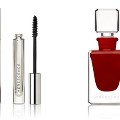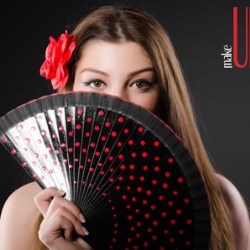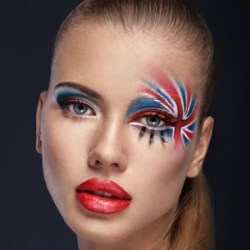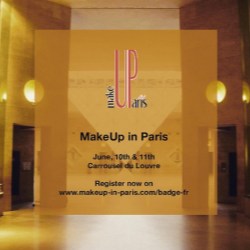If this is your company, CONTACT US to activate Packbase™ software to build your portal.


The eighth edition of MakeUp in Paris will be driven both by emotions linked to make-up and by new trends resulting from the métissage of populations in the world. On Friday June 23, 2017, from 10:15 to 11:00am, Patrice Bellon, President of the Société Française de Cosmétologie (SFC) with Arnaud Aubert, Abstract, will describe the emotional evaluation of pleasure and well-being in relation with the use of make-up products. And from 12:15 to 1:00pm, Aïmara Coupet, Brown Skin expert, specialized in marketing and product development, will explain why creating make-up products for dark to very dark skin is still a challenge.... Not to be missed!
"We all know intuitively that looks matter even though we are admonished 'don't judge a book by its cover'", explains Arnaud Aubert. "But what Psychology and Neurosciences teach us is the massive impact of physical appearance on the way we judge each other at first sight. Indeed, physical appearance is not only involved in seduction and romantic relationships, but also in almost every form of social interactions.
The impact of faces is shown in our impressions of people as well as in our behaviour towards them, such as whom we help, whom we hire, or whom we ask for a date. Additionally, the ecological approach to social perception holds that people's faces provide adaptive information about the social interactions they afford (e.g. the 'cute' face of a baby elicits approach and protective responses whereas an angry face potentiates avoidance and defensive responses).
Experimentally, it has been shown that we can generate spontaneous social judgements (i.e. trustworthy or not) on the unique basis of visual cues offered by a face. Moreover, small modifications of facial morphology directly impact such judgements. In parallel, brain imaging methods reveal that such judgements are correlated with an increase activity of limbic system and especially amygdala, thus anchoring social judgement on fast and implicit emotional assessments. Interestingly, these social judgements are highly correlated to pleasantness of facial morphologies, hence attractiveness."
Why do specific faces create specific impressions?
Attractiveness is the appearance quality that has received the most attention in research on impressions from faces. People with more attractive faces are consistently judged more positively on several dimensions and literature confirm that they are perceived as more outgoing, socially competent and powerful, sexually responsive, intelligent, and healthy. But we still have to answer many questions to understand the functional implications of appearance and attractiveness: Why does facial appearance matter? Why do specific faces create specific impressions? What are the cues involved?
Neanderthals may have used coloured pigments 50,000 years ago!
In parallel to this research on facial morphology, a set of studies have been recently undertaken to examine the psychological and behavioural impact of facial makeup. As a rationale, it should be reminded that makeup represents much more than a modern glamorous tool. Makeup is present all over the planet, even in hunter-gatherers' cultures.
Moreover, it has been used by mankind for thousands of years: Neanderthals may have used coloured pigments on their skin some 50,000 years ago, and paint pigments date back 75,000 years, suggesting people may have used body paint before they wore clothes. In line with previous studies, we found significant and consistent relationships between specific makeup patterns and a set of judgements, including social skills, motivation, attractiveness, and age. These promising findings open the way for further researches to better understand the implicit codes of makeup as a form of non-verbal communication. »
Dark to very dark skins, a challenge?
"The desire of every brand is to offer a product suiting every woman throughout the world," explains Aïmara Coupet. Ads are increasingly putting forward cultural diversity and make-up brands are expanding their offer by proposing additional shades ... And yet, it does not seem to be enough. A lot of women with dark-skin complain that they have problems finding what they are really looking for, or even, still feel excluded from the offer of some brands. Why are skins with a light olive to a very dark skin tone not yet fully represented?
If we put aside sociological debates and other economic considerations to focus solely on product development, we see that there is a lack of general knowledge and R&D work dedicated to the needs and characteristics of dark skins in our industry. And yet, when your are trying to obtain the perfectly adapted product, there are many elements that pose real challenges. Indeed, the colour of the skin is one of the challenging elements but there is also the texture, density, hyperseborrhoea, dyschromia... Many elements to take into consideration for an optimal product result.
Hence, to be successful it is important to know the specificities and needs of dark to very dark skins and ask oneself the right questions. What make-up result are we looking for exactly? Will a shade extension in a given formula really give satisfying results? How to design the best shades for these skin tones? Are specific formulations required? Should some ingredients be avoided? Is it really possible to have a make-up offer that includes all women throughout the world?
Aïmara Coupet, after relaunching the product catalogue of the French make-up brand blackUp, will share her knowledge and insights… because the world of tomorrow will definitely be a mixed world!"
MakeUp in Paris takes place on 22 & 23 June 2017 at the Carrousel du Louvre.


.jpg)
.jpg)
.jpg)
.jpg)
.jpg)
.jpg)
.jpg)
.jpg)

.jpg)
.jpg)
.jpg)






.jpg)





.jpg)
.jpg)

.jpg)







